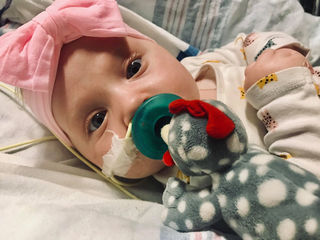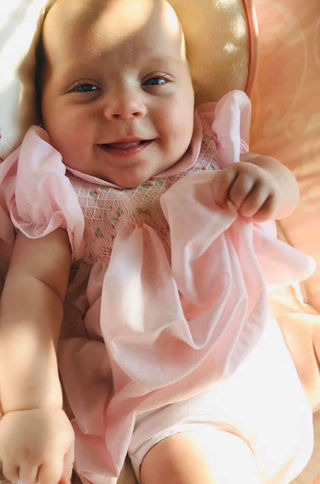Media
Part III: When Someone Experiences the Unimaginable
Premature Birth and Child Loss
Posted March 8, 2020
In this final installment of “When Someone Experiences the Unimaginable,” we are sharing about premature birth and baby loss. Premature birth is unique in that it is a scary and devastating crisis, but babies can eventually go home with their parents. Some do not. Baby loss can be expected or unexpected and since these communities need particular and unique supports, here is what we’ve learned from peers, friends, and family.
Premature Birth: Elisa’s daughter Madeleine was born at 33 weeks, and when practitioners deemed Elisa ready discharge after surviving severe pre-eclampsia, she returned to work to maintain health benefits. Without a baby at home, she felt pressure to immediately “bounce back” at work, and she needed to “bank” her maternity leave for her daughter's homecoming. Neonatal Intensive Care Unit (NICU) nurses, tasked with teaching the baby’s “cares” reminded them not to live at the hospital yet chided her for not spending more time there just before discharge (e.g., to practice safe bathing routines). Research suggests that NICU parents can develop clinical PTSD (post-traumatic stress disorder) from their experiences. So what can friends and family do to help?
- Families need assistance while their baby is cared for in the NICU: meal trains, laundry, cleaning service, laundry service. Alternatively, you can ask your friends if you can cook a meal and do laundry when they are at the NICU.
- Invisible costs: people reported that food, coffee, and parking (there is very limited free parking for NICU parents!) becomes an added stressor.
- Grab coffee gift cards; send take-out or provide packed meals for the family to eat while at the hospital
- Start a GoFundMe for parking, particularly for hospital stays beyond 30 days
- Contact the Grahams Foundation to get a free care-package sent!
- For more ideas, check out this list.
Infant/Baby Loss: When a family we interviewed abruptly and very unexpectedly lost their daughter Amaiya shortly after her birth, they had no way to navigate the expectations around returning to work. Then the mother’s body started lactating—a process that reinforced her grief anew. It can be hard to know what to do, particularly because losses of this nature are so deeply unnerving; it can feel more comfortable to “give people space,” but what that might mean is we are overwhelmed by the idea ourselves, and space can equal isolation for grieving families.
- Use the child’s name
- Comment on images they post on social media, talking about the child as a person, not a memory
- Make space for the parents/siblings/family to talk about the child that passed—this becomes more important as time goes on. Two, three, ten years later. The loss doesn’t go away, but the interest of the surrounding community often does
- Be willing to engage in ongoing memorial rituals, donation funds, remembrance walks. Set aside important dates on your calendar every year, and show up. Check out Scraps of the Heart Project, started by our friend Dr. Erin Willer after her losses.
- Remember that meals, laundry service, cleaning and all the rest are still necessary. Please continue with “food trains” and reach out to other folks that know the family to sponsor laundry pick up or other services the family might need
- Consider asking the parents about a postpartum doula and/or grief doula to help care for the postpartum bodies of the parents. There may be physical healing that needs to occur as well (e.g. postpartum care).
- Mark the child’s birthdate, and send a card every year or whenever you can
- Check-in on the parent who did not give birth—their experience is different, but they are also grieving

In our community, the Aldrich family went through the devastating loss of their daughter Claire Elizabeth Aldrich at eight months. Initially, they believed their daughter had a respiratory virus, but it turned out she had a degenerative disease with only a few months to live. Sally openly shared her experiences on Facebook and continues to keep a page for Claire, a place Sally also uses to walk through her grief. Here is a powerful article sharing their story in detail. We were awed watching the local community come out to support Sally, and celebrate Claire’s life at a local park. We asked Sally about the role of social media during this time. She said:

"Social media has not only been a platform for me to write about how I feel, and how we are grieving (on Claire’s page) but it has also been such a useful tool in connecting with other mothers, and parents. People are able to follow Claire’s journey page (which has very much turned into our family’s journey) with a click of a button. Through social media, we have been able to reach such a large audience, and have been able to share her story with so many - with our intention being that maybe parents will hold their own just a little tighter."
From what we’ve learned, we know each of Sally’s posts about Claire now is an opportunity—to share in Claire’s life, to speak her name, and celebrate a life lived.


